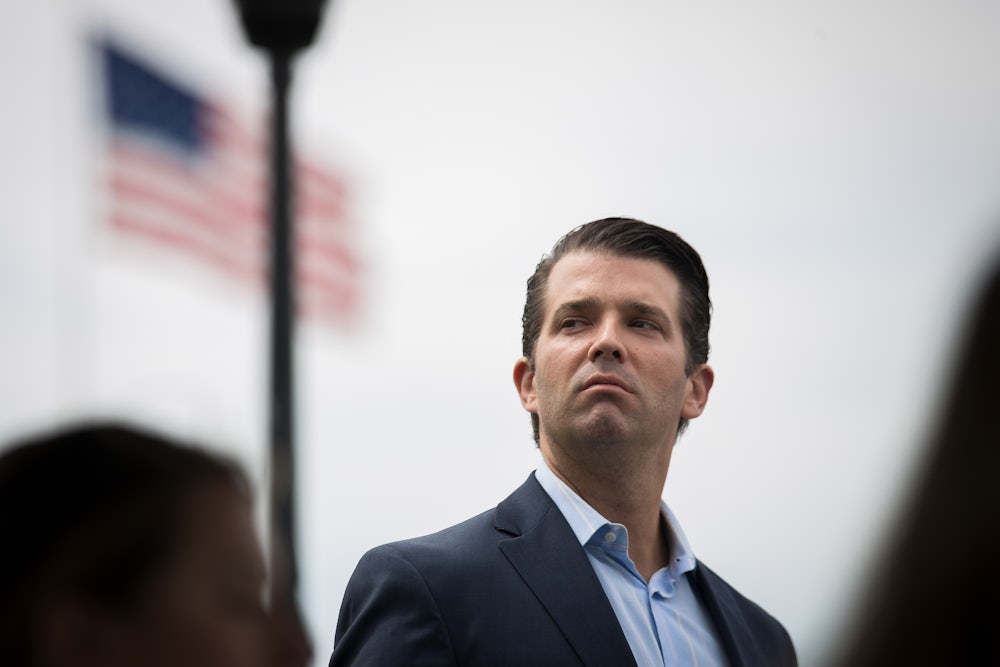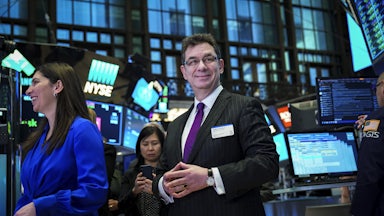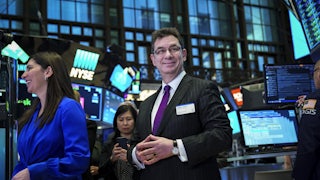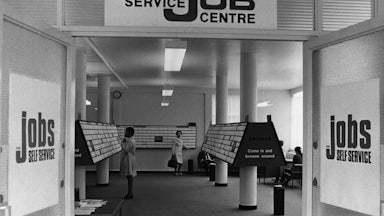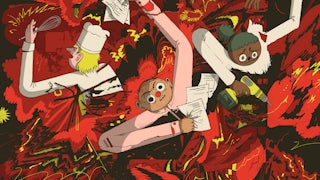The ongoing fallout over a group of Redditors boosting GameStop and other heavily shorted stocks has landed—inevitably—at the door of the Trump family. While the former president hasn’t spoken out, Don Jr. has, aligning himself with day traders angry that Robinhood has stopped letting its users buy GameStop, Nokia, BlackBerry, and other now-volatile securities that have been dubbed Reddit YOLO stocks. Adopting his father’s faux-populist mantle, Don Jr. tweeted this morning: “It took less than a day for big tech, big government and the corporate media to spring into action and begin colluding to protect their hedge fund buddies on Wall Street. This is what a rigged system looks like, folks!” (Cue the Clickhole article about the worst person you know making a good point.)
Don Jr., generally a fan and beneficiary of rigged systems, has opportunistically strayed out of his normal habitat and ended up close to the truth. He’s found some strange fellow travelers there, including anyone from the boorish Barstool Sports honcho Dave Portnoy to leftist stalwart Representative Alexandria Ocasio-Cortez. Representative Rashida Tlaib summed it up for many critics when she tweeted: “They’re blocking the ability to trade to protect Wall St. hedge funds, stealing millions of dollars from their users to protect people who’ve used the stock market as a casino for decades.”
The superficially bipartisan outcry over the GameStop episode reflects a growing public sense that we are witness to an already rigged market that, when faced with a taste of its own manipulative medicine, changed the rules to favor its hedge fund allies. Stock trades restricted on Robinhood and TDAmeritrade; a key Discord channel shut down; spam on the r/WallStreetBets subreddit forcing it to go private; stock market executives threatening to halt trading—it’s difficult to dispute those who complain that tech companies and the financial establishment, with the encouragement of CNBC and financial media, are putting their thumbs on the scale to prop up the status quo. And as Vice found, 56 percent of all Robinhood users own some GameStop stock, which may further a popular backlash.
It seems unlikely that the shared disgust over casino capitalism will lead to any bipartisan policy agreement, much less meaningful regulation of the financial institutions that created these conditions in the first place. Right-wing lawmakers—including the Trump family and its political allies—have benefited from generous rules covering everything from insider trading for senators to tax write-offs for real estate moguls. There may be fines for companies like Robinhood, which, by limiting trades in some of the most highly sought-after stocks, is rapidly alienating its middle-class user base. But given what’s being fought over here—the right to trade securities in moribund companies with the same recklessness that hedge funds do—the GameStop rebellion is not the basis of a durable political movement. (A sentence I never thought I’d have occasion to write.) Still, while the left shouldn’t mistake this for some epochal moment, it is a useful and teachable one, and it would be a mistake to cede the justifiable anger to right-wing fakers like Ted Cruz and Donald Jr. There’s a vacuum in leadership to be filled.
Reportedly, President Joe Biden has been briefed on the situation, and there is hardly a politician who now doesn’t have a position on the affair. But many of them sound like Representative Ro Khanna, who wrote that “nearly half of American families aren’t even invested in the stock market,” before going on to call for “more regulation and equality in the markets.” Instead of worrying about the wide-ranging influence of the stock market—often affecting people who will never buy stock—the focus is on turning more people into investors, into small-time gamblers. The rhetoric here is similar to that of the fintech industry, which equates people being “underbanked”—itself an ideologically tinged term—with a lack of political and social rights. The implication is that everyone should have a right to trade stocks, yes, but everyone should also have stocks.
Welcoming more customers into the casino is precisely the logic that helped lead to the 2008 economic crash. While we might want Robinhood to treat its customers more fairly, we shouldn’t want it to have more customers. Expanding access to the stock market and to a day trading community led by volatile swarms of Redditors is not a good unto itself. The demands of this strange moment shouldn’t be to give another group of people the right to manipulate an already rigged, socially regressive market.
There’s a lot that could be done. Transaction taxes would at least make Wall Street’s high-frequency trading a marginally productive enterprise. The Securities and Exchange Commission should continue to investigate Robinhood and its backroom dealings with hedge funds. Markets could introduce limits on short selling so that these kinds of short squeezes don’t happen again. And we may soon learn more about how these markets and trading platforms operate: A class-action suit has already been filed against Robinhood for preventing customers from trading in GameStop stock.
Some lawmakers seem at a loss to express anything more than outrage that something isn’t being done to contain the situation. In a statement, Senator Elizabeth Warren noted that “the stock market doesn’t reflect our actual economy” while calling out “wealthy investors” for treating the stock market like a casino. “Everyone else pays the price,” wrote the senator. “It’s long past time for the SEC and other financial regulators to wake up and do their jobs.” Warren is right, but to this point, regulators doing their jobs have mostly protected the casino on behalf of those same wealthy investors.
Right-wing politicians and pundits have an excuse for their opportunism: They look at the GameStop day traders and see a new constituency whose elite resentments they can exploit. (Smart Dems can see this con for what it is.) But most people should recognize that finance capitalism is largely at odds with small-d democratic movements, much less the kind of mutual aid and egalitarianism that this period of interlocking crises demands. We shouldn’t spread the impunity of hedge funds around to more people or try to game the market: We should break it.
